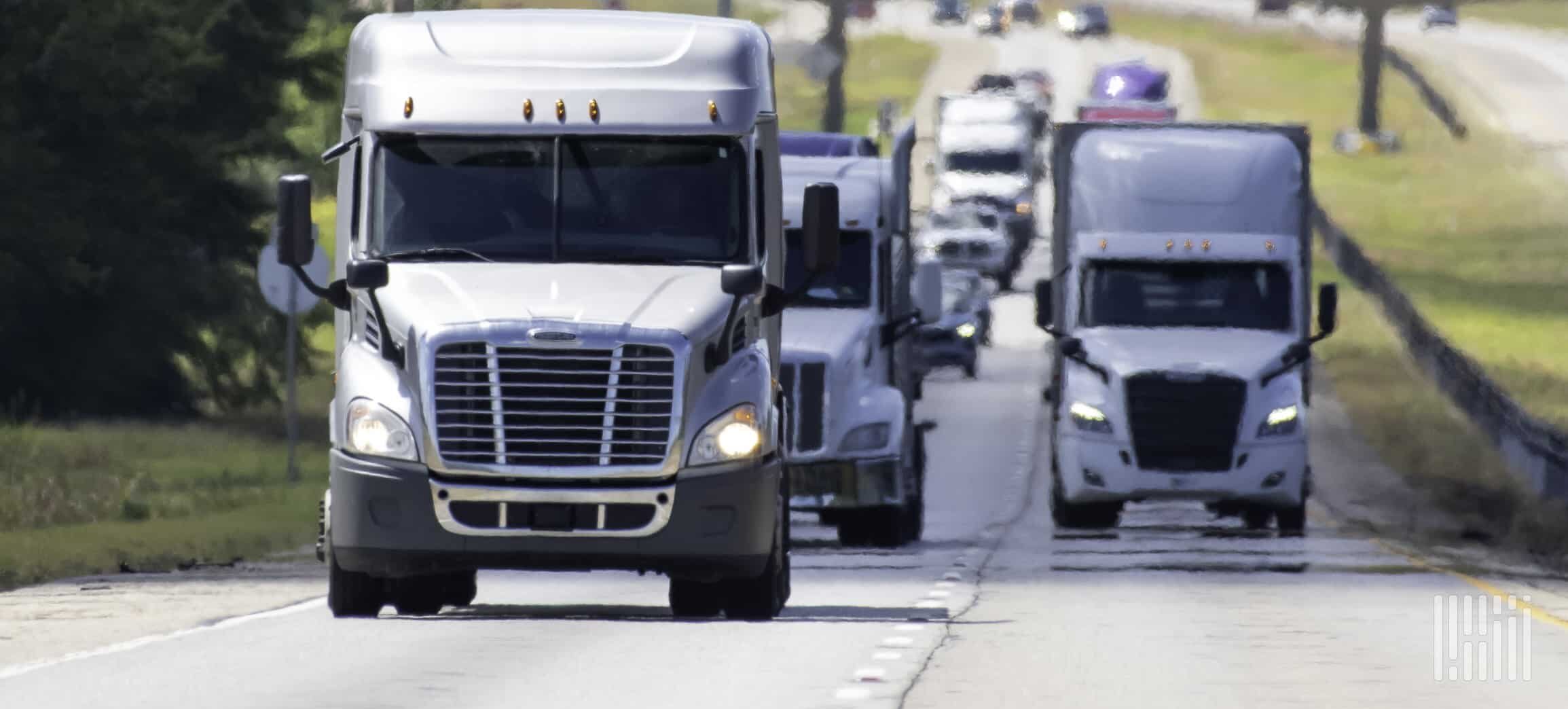Before the existence of the Unified Registration System (USR), interstate carriers had to file paperwork with a variety of institutions, such as the Motor Carrier Management Information System (MCMIS) or the Licensing and Insurance System (L&I), instead of a single entity.
As of 2015, motor carriers, freight forwarders, brokers and other entities regulated by the Federal Motor Carrier Safety Administration (FMCSA) can register with a single online system.
While the rollout of the new system faced some delays, seeing as its implementation took longer than expected, all participating states can now perform online URS registration as intended.
How Does the Unified Registration System Work?
Whether you own a private or for-hire motor carrier business in the United States for passengers or freight, you need to go through the online URS registration process. Any existing records will have been transferred over into the new system, and because the FMCSA is a federal organization, no states are exempt.
What Is the Purpose of UCR Registration?
UCR stands for Unified Carrier Registration, which has taken the place of the old Single State Registration System. UCR exists to generate revenue for motor carrier enforcement safety programs. The requirements for UCR went into effect in 2018 and apply to:
- Operators of commercial motor vehicles (CMVs) that cross state lines
- Freight forwarders
- Brokers
- For-hire, private motor carriers that transport interstate goods
The rule applies to carriers even when their vehicles are operating intrastate, as long as the products are destined for interstate sales.
New carriers filing through the URS must complete Form BOC-3 to receive a U.S. Department of Transportation (USDOT) number. The $300 fee that used to apply to motor carrier (MC) numbers will now apply when filing for a USDOT number.
Who Does the Unified Registration System Apply To?
The unified systems of the FMCSA make registration easier for each of the entities under its jurisdiction:
- Motor carriers
- Freight forwarders
- Brokers
- Intermodal equipment providers (IEPs)
- Hazardous materials safety permit (HMSP) holders and applicants
- Cargo tank manufacturing and repair facilities
If you’re unsure whether UCR and its requirements apply to you, contact the FMCSA and ask about your situation. When operating, you will not be required to carry UCR credentials in your qualified vehicles to maintain compliance, though you may want to have a receipt of fee payment for easy proof.
Do I Need UCR for Interstate Transport?
Forty-one states participate in UCR, while the remaining nine states (and the District of Columbia) do not:
- Hawaii
- Nevada
- Maryland
- Arizona
- New Jersey
- Wyoming
- Oregon
- Vermont
- Florida
However, motor carriers that operate across state lines must obtain a UCR number — even if they operate out of a state that does not. The penalties for noncompliance range from $100 to $5,000 for the first offense alone — a good reason to be familiar with your legal resources.
How Do I Apply for a UCR Number?
The process for getting your UCR number is not difficult, but you need to carefully follow the steps involved.
How Many Vehicles Are in Your Fleet?
You need to know the number of qualifying fleet vehicles you own, which include:
- Cargo vehicles with a gross weight/weight rating of more than 10,001 pounds
- Passenger vehicles designed for 10 or more passengers, including the driver
- Hazardous material transport vehicles that carry mandated placards
It’s important to be familiar with your fleet. Your company-owned car or pickup truck would most likely be exempt.
Contact the Unified Carrier Registration Office and Register
Your jurisdiction, if applicable, will have a UCR registration office. You will need to consult a list of offices for your specific location. You may also register online.
Calculate the fees
Following your registration, you must pay the appropriate fees. These fees are paid per company rather than per vehicle.
UCR Registration Fees
The amount you pay is based on how many qualified vehicles you have in your fleet.
| Number of CMVs | 2023 State Fees |
| 0-2 | $76 |
| 3-5 | $227 |
| 6-20 | $452 |
| 21-100 | $1,576 |
| 101-1,000 | $7,511 |
| 1,001 and above | $73,346 |
Advantages of the URS
Now that the URS is in place, these unified systems and processes reduce the amount of paperwork businesses must fill out, resulting in fewer errors. Thanks to the process being entirely electronic, it’s also easier for the FMCSA to weed out high-risk carriers and reincarnated carriers.
Unified Registration System vs. Unified Carrier Registration
While they are often confused, the URS and UCR are entirely different. The URS is the FMCSA’s new unified system that combines disparate forms and entities into a single digital registration. UCR, on the other hand, is an agreement between states to use registration fees for motor carrier safety education.
Whether You Need the URS or UCR, Make Sure You Have the Right Information
It’s easy to get confused between the URS and UCR. With such similar initialisms, even longtime professional carriers have mixed them up. But by understanding the systems and their requirements, you can stay in compliance.
FAQ
Any cargo vehicles with a gross vehicle weight or weight rating of 10,000 pounds or less, passenger vehicles designed to carry fewer than 10 passengers (driver included) and vehicles carrying hazardous materials in quantities small enough to avoid placarding requirements.
UCR fees exist to provide continued education for motor carrier enforcement safety. Businesses that are required to pay the fees include operators of commercial motor vehicles that operate across state lines, freight forwarders, for-hire, private motor carriers transporting goods intended for interstate sales and brokers.
Noncompliance carries financial penalties. While each participating state carries different penalty amounts, first-time offense penalties range from as low as $100 to as high as $5,000 per offense.
Sign up for a FreightWaves e-newsletter to stay informed of all news and trends impacting supply chain careers and operations.


